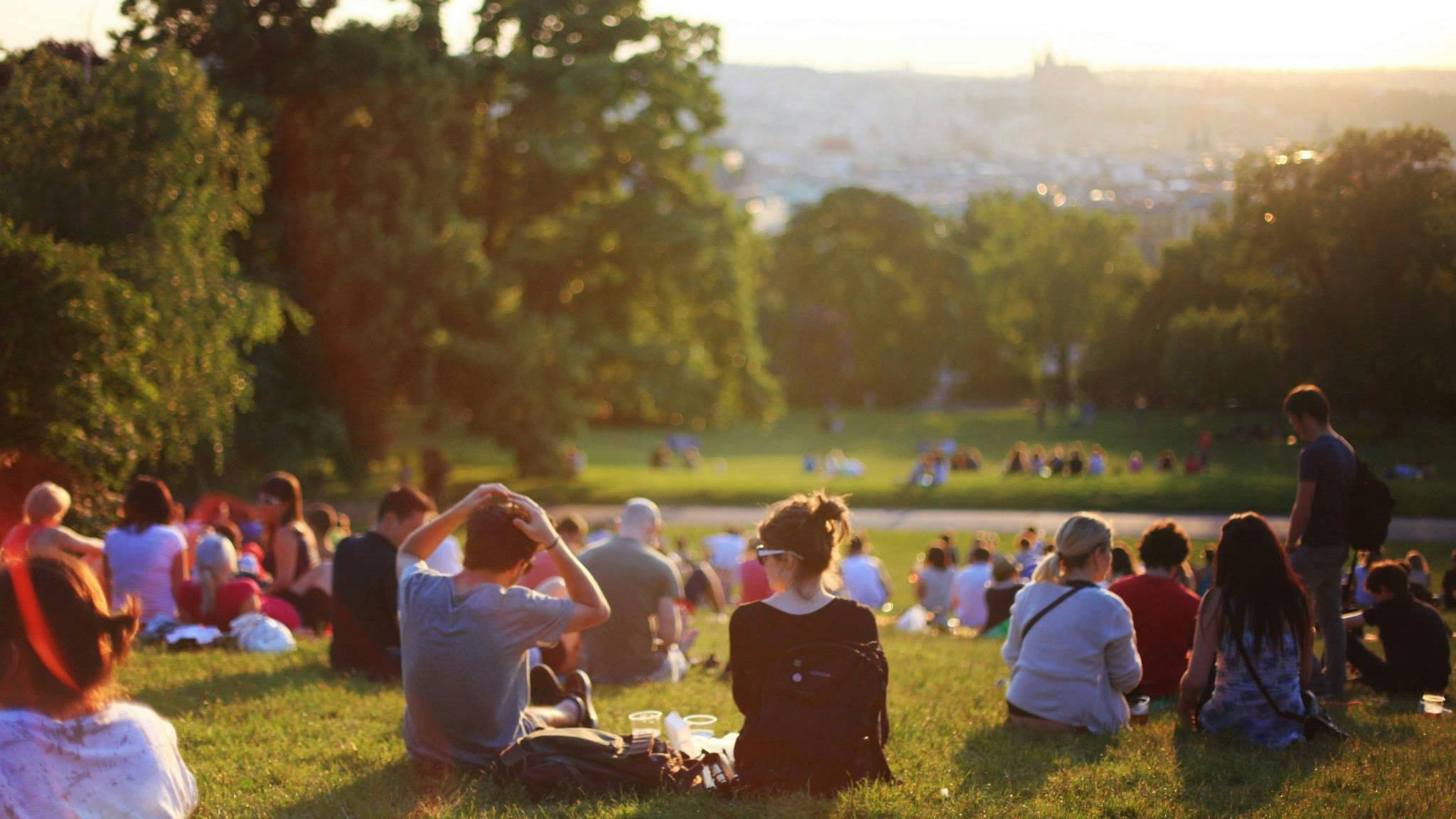Gen Z’s Rise: Why Purpose, Hobbies & Offline Communities Are Their Mental Health Lifelines
Nov 02, 2025
The youngest generation of adults has come of age in an era of constant crisis and constant connection. Between global instability, economic uncertainty, and an unrelenting digital culture, Gen Z has had to navigate adulthood while their attention, energy, and hope are continually tested. Yet, in the midst of that chaos, something remarkable is happening: a quiet cultural correction. Many young people are turning away from the noise of online life and the pressures of performance, seeking meaning through tangible purpose, creative expression, and local community.
What’s emerging is not rebellion for rebellion’s sake, but a redefinition of well-being. Gen Z is challenging the idea that mental health is an individual burden to manage privately. Instead, they are rediscovering balance through shared values—purposeful work, creative hobbies, and genuine human connection beyond the screen. These pursuits don’t erase the anxieties of modern life, but they give them shape, helping transform overwhelm into action and isolation into belonging.
The rise of this movement signals more than just a generational preference; it’s a shift in how we understand resilience itself. For Gen Z, healing isn’t found in detachment but in re-engagement—with life, community, and the deeper sense of purpose that anchors both. Learn more about the youth mental health crisis by clicking here.
Table of Contents
The Mental Health Landscape of Gen Z
Gen Z—the generation born roughly between the mid-1990s and early 2010s—has grown up in a world defined by turbulence. From global recessions to political polarization, climate change, and the ever-present hum of digital life, they’ve inherited an environment that is both hyperconnected and deeply unstable. This generation is more open about mental health than any before them, yet they also report the highest levels of anxiety, depression, and burnout. Their experiences highlight a profound paradox: they possess unprecedented access to information, tools, and awareness around mental health, but the pace and pressure of the modern world continually undermine their capacity to feel grounded.
A defining feature of Gen Z’s mental health experience is constant exposure. Social media platforms—where identities are curated, lifestyles compared, and global crises unfold in real time—blur the boundaries between personal experience and collective anxiety. Scrolling through a feed can mean switching from a friend’s graduation post to breaking news of tragedy within seconds. This unrelenting cognitive and emotional switching has created what psychologists call empathy fatigue—a chronic state of overwhelm where individuals care deeply but struggle to process or act on what they feel. Over time, this erodes motivation, fosters cynicism, and leaves many feeling emotionally threadbare.
Economic instability has also played a central role. Gen Z entered adulthood during times of historic uncertainty: the aftershocks of the Great Recession, the COVID-19 pandemic, and the rising cost of living. Traditional milestones—homeownership, career stability, financial independence—have become increasingly difficult to attain, feeding a sense of disillusionment. Many young people report feeling like they’re “running on a treadmill,” working hard but unable to progress in tangible ways. This has amplified feelings of inadequacy and existential doubt, especially as they compare themselves to filtered images of success online.
Yet within these challenges lies a defining strength: awareness. Gen Z has normalized therapy, self-reflection, and open discussions around mental health in ways that previous generations hesitated to do. They are more likely to recognize signs of burnout, seek help, and challenge outdated notions of toughness and silence. Online communities have become lifelines, offering validation, shared experience, and a sense of solidarity for those navigating mental health struggles. However, these same platforms can also trap users in cycles of comparison and doomscrolling, leaving them simultaneously connected and isolated.
This duality—hyperconnection paired with deep loneliness—is at the heart of Gen Z’s mental health landscape. The constant stimulation of digital life, compounded by external instability, has made rest and presence feel almost radical. Many are beginning to recognize that healing won’t come from more apps or productivity hacks, but from rediscovering slower, more tangible sources of fulfillment: purpose, creativity, and real human connection. These emerging shifts point toward a generation that, though weary, is redefining what resilience looks like in an age of endless noise.

The Search for Purpose in an Unstable World
For Gen Z, the search for purpose isn’t a luxury—it’s a form of survival. Unlike previous generations who were taught to prioritize stability or material success, Gen Z came of age during overlapping global crises that made both feel fragile. Climate disasters, mass layoffs, political upheaval, and the constant churn of information have left many young people with a sense that the world is precarious and unpredictable. In response, purpose has become an emotional anchor—a way to make sense of uncertainty and find direction in a landscape that rarely offers it.
Psychologists have long noted that purpose gives life coherence. It offers a sense of belonging, agency, and meaning beyond day-to-day survival. For Gen Z, this search is deeply intertwined with identity. Their work, values, and social engagement are rarely separate; they want alignment between what they do and who they are. Surveys show that Gen Z places a higher emphasis on meaningful work than on salary alone, and they are quick to leave environments that feel morally or emotionally draining. This reflects not entitlement, as older generations sometimes assume, but a heightened sensitivity to authenticity—a psychological response to years of witnessing institutions fail to live up to their ideals.
Many Gen Z individuals channel their sense of purpose into activism and advocacy. Movements around climate change, racial justice, gender equality, and mental health have been amplified by their voices. These causes aren’t just passions—they’re lifelines that give structure to an otherwise chaotic social reality. Through digital organizing, they’ve found communities that affirm their values and validate their struggles. Yet, the same digital platforms that allow for activism can also blur the line between engagement and exhaustion. The constant influx of information can create activist burnout, where the weight of global crises becomes too heavy to sustain emotionally. The drive for purpose, in this sense, often teeters between empowerment and depletion.
For others, purpose has taken a quieter form. Many Gen Zers are rejecting the hustle culture of the 2010s in favor of what some call “soft living”—a lifestyle centered on balance, creativity, and emotional well-being. This shift reflects a collective disillusionment with the idea that worth must be proven through productivity. Instead, purpose is being redefined as sustainability of the self: finding meaning in smaller, slower, and more personal pursuits, whether through art, volunteering, or community connection. It’s a movement away from grand gestures and toward grounded existence.
Ultimately, Gen Z’s pursuit of purpose is not about lofty ideals or performative passion—it’s about healing a collective sense of disconnection. Their insistence on meaning represents a quiet rebellion against the cynicism of the digital age. In a world that often feels fractured and transient, purpose becomes the thread that ties their experiences together. Whether through activism, creative expression, or everyday care, this generation is reconstructing the idea that meaning doesn’t have to be monumental—it just has to be real.

The Return of Hobbies and Creative Expression
In the midst of digital overload and economic uncertainty, Gen Z is rediscovering something beautifully simple: hobbies. Not side hustles, not monetized passions, but genuine, restorative pastimes done purely for enjoyment. From crochet and journaling to gardening, painting, and analog photography, this generation is reviving creative expression as both a coping mechanism and a quiet act of rebellion against productivity culture. After years of being told that every interest must become a career or “content,” they are reclaiming creativity as a deeply personal—and profoundly healing—part of being human.
The return to hobbies among Gen Z reflects a growing rejection of the “grindset” mentality that dominated the late 2010s. Many watched their parents burn out or their peers hustle endlessly to stay afloat, and they’ve begun to question the emotional cost of tying self-worth to achievement. Hobbies offer a counterbalance: they allow for flow, presence, and pleasure without external validation. Psychologists have long noted that engaging in creative play activates the brain’s reward system, lowers cortisol levels, and fosters a sense of agency. When someone paints, knits, bakes, or tinkers just for themselves, they momentarily step outside the performance loop of likes, metrics, and deadlines—and reconnect with intrinsic motivation.
Interestingly, much of Gen Z’s creative revival has a nostalgic quality. Analog media—film cameras, vinyl records, typewriters, zines—has made a surprising comeback. This isn’t mere aesthetic preference; it’s a sensory antidote to digital life. The tactile satisfaction of turning a page or mixing paint provides a grounding experience that screens cannot replicate. In a world where so much of existence is virtual, physical creativity becomes a form of mindfulness—a way to anchor the body and mind in the present moment. These offline hobbies also carry a sense of ritual, creating small pockets of stability in an otherwise fragmented day.
The social dimension of creativity has also evolved. Online spaces, once dominated by performance, are now seeing a rise in “slow content” communities—groups where people share their crafts, progress, and imperfect projects without pressure for perfection. Subcultures on TikTok, YouTube, and Discord centered around quiet hobbies, cottagecore aesthetics, and mutual encouragement provide a sense of belonging that feels gentler than traditional social media engagement. For many young people, these creative micro-communities have replaced the competitive, comparison-driven environments that once defined their digital experience.
Beyond personal enjoyment, the return of hobbies has broader mental health implications. It represents a rebalancing of values—a move toward process over outcome, rest over hustle, authenticity over productivity. Creative hobbies remind Gen Z that identity doesn’t have to be constantly optimized or broadcast; it can be nurtured in quiet, private spaces. This shift toward slower, more tactile forms of expression suggests that Gen Z is not merely escaping digital stress, but actively redefining what it means to feel fulfilled. In choosing to make, craft, or create without purpose beyond joy, they are reasserting control over their attention—and rediscovering the simple pleasure of being present.

The Power of Offline Communities

Building a Healthier Future Through Balance
For Gen Z, the challenge of the next decade won’t be rejecting technology, but learning how to live with it—intentionally, compassionately, and in balance. This generation’s growing embrace of purpose, hobbies, and offline connection reflects not a desire to abandon progress, but to humanize it. They are the first to fully understand the psychological cost of constant connectivity, and they are actively shaping a future that prizes equilibrium over excess. The mental health revolution they’re leading isn’t about going backwards—it’s about reimagining what a sustainable, emotionally intelligent future looks like in a world that never stops moving.
Balance begins with boundaries. Gen Z is redefining what it means to have a healthy relationship with work, technology, and social expectation. After witnessing burnout in their parents’ generation—and experiencing their own digital exhaustion—they are more willing to prioritize rest and mental wellness over endless productivity. This cultural pivot is crucial. Sustainable well-being isn’t built on rigid control or rejection of modernity, but on flexibility: the ability to engage deeply when needed, and to disconnect when necessary. By normalizing boundary-setting, Gen Z is challenging long-held norms that equate busyness with worth, reminding the world that recovery and reflection are not luxuries, but essential components of resilience.
A key part of this balance lies in integrating the digital and physical worlds, rather than treating them as opposites. Many Gen Z individuals are experimenting with hybrid lifestyles—using technology to organize local events, support mental health communities, or fund creative projects—while ensuring that their core experiences remain embodied and grounded. This mindful use of technology represents a maturation of the digital age: one where tools serve human flourishing, not the other way around. Mental health apps, online therapy, and digital support spaces are valuable, but they’re most effective when paired with offline practices like exercise, creativity, and real human contact. Balance, in this sense, becomes an act of conscious design.
On a broader scale, Gen Z’s values are influencing how institutions, workplaces, and cultures adapt. Employers are learning that younger workers care deeply about purpose, flexibility, and mental health. Schools are beginning to prioritize social-emotional learning, teaching young people how to manage stress, self-reflect, and collaborate with empathy. Communities are investing in local initiatives that blend social connection with mindfulness, art, and volunteerism. These shifts mark a profound societal realignment—from reactive coping to proactive care. The balance Gen Z is striving for doesn’t just benefit individuals; it lays the groundwork for collective well-being.
Still, balance is not a static achievement—it’s a lifelong practice. There will always be new distractions, pressures, and technological temptations. The goal isn’t to find perfect harmony, but to cultivate awareness: to notice when digital life begins to overshadow real life, when ambition turns into exhaustion, when self-care slips into avoidance. Gen Z’s openness to reflection and vulnerability offers a powerful model for this kind of ongoing recalibration. By speaking candidly about their mental struggles and prioritizing emotional literacy, they’re helping dismantle the stigma that kept previous generations silent.
Ultimately, building a healthier future means recognizing that mental health is not just an individual pursuit, but a communal one. The balance Gen Z seeks—between connection and solitude, screen and soil, ambition and rest—reflects a collective yearning for wholeness. It’s a movement toward living in rhythm rather than reaction, toward creating a culture where thriving doesn’t require burnout. If this balance holds, the future won’t just be more connected—it will be more conscious, more compassionate, and more deeply human.

More Resources
If you are interested in learning more, click here. For more information on this topic, we recommend the following:
Are you passionate about helping others unlock their potential? Our Board Certified Coach (BCC) training, approved by the Center for Credentialing & Education (CCE), equips you with the skills, tools, and certification needed to thrive as a professional coach. Take the next step toward a rewarding coaching career with our comprehensive program! Click here to learn more!
Out of Focus: Why Gen Z's Mental Health Crisis is More Complex Than You Think
DISCLAIMER: As an Amazon Associate we earn from qualifying purchases. This post may contain affiliate links that will reward us monetarily or otherwise when you use them to make qualifying purchases. In addition, there may be non-Amazon affiliate links in this post which means we may receive a commission if you purchase something through a link. However, be assured that we only recommend products that we see genuine value in.
The information provided is for educational purposes only and does not constitute clinical advice. Consult with a medical or mental health professional for advice.
Finances do not have to prevent you from getting support.
Come join our support community.
Where would you like us to send the free support group invite and complimentary workbook?
Your Information Will Be Kept Private




